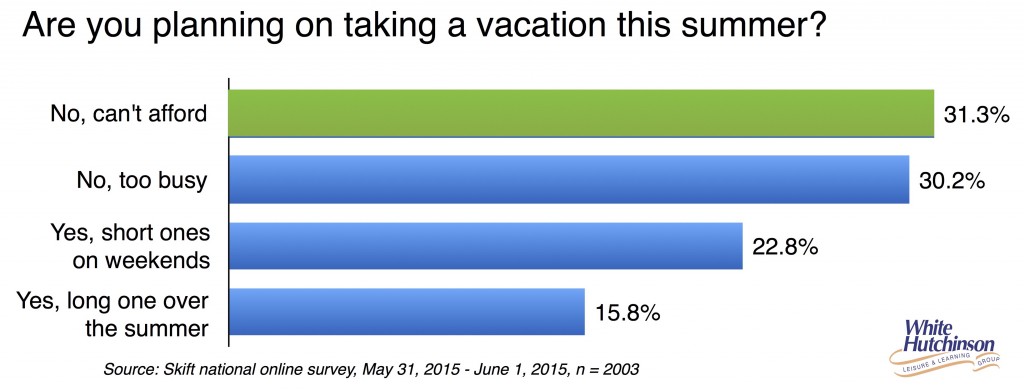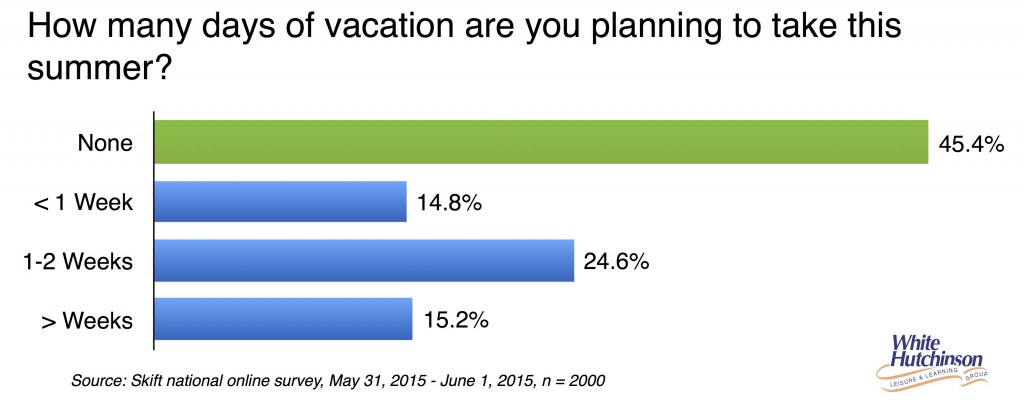Each year Skift, a travel research company, surveys Americans on their upcoming summer vacation plans. The first question they asked this year was “Are you planning on taking a vacation this summer?” The overwhelming answer this year was almost exactly the same as the one they got last year – about 62% of Americans said they wouldn’t be taking a vacation this summer at all. More than half said they couldn’t afford a vacation. Only about 16% said they are taking a long summer vacation, while about 23% said they are taking short breaks on weekends throughout the summer.
In addition, this year Skift also asked the question in a slightly different way: “How many days of vacation are you planning to take this summer?” And the answer was that 45% said none, and another 15% said less than one week. The number of Americans taking a long summer vacation was the same as with the first question – 15%.
The results from this survey of Americans’ vacation plans is consistent with Skift’s early 2015 survey that found that 41% of Americans said they didn’t take a single vacation day during the entire 2014 year.
The good news is that more Millennials are planning on taking (short or long) summer vacations this year than any other age group. Middle-aged Americans (35-60 year olds), mired in the overworked economy, are amongst the least likely to take vacations this summer.
Affluent Americans (those above $100K incomes a year) are the most likely to take summer vacations this year, while those in the lower income bracket ($50K and below) are the least likely to. Parents and their families are trying to take a lot more summer vacations than the non-parents according to the survey results.
Although it might seem logical that those taking fewer vacations would spend more on staycation out-of-home entertainment in their local communities, our company’s research finds just the opposite. Average household location-based entertainment spending on trips has been on the decline for years while there has not been any offsetting increase in non-trip location-based entertainment spending. The reason is probably two-fold. First, lots of families can no longer afford out-of-home entertainment. Secondly, entertainment spending is shifting to at-home and mobile screen digital entertainment. So people are now getting a larger share of their entertainment fix on digital screens with no need to leave their homes, what is called digital hiving.
For additional information about digital, read The rise of super Digital Hiving.






